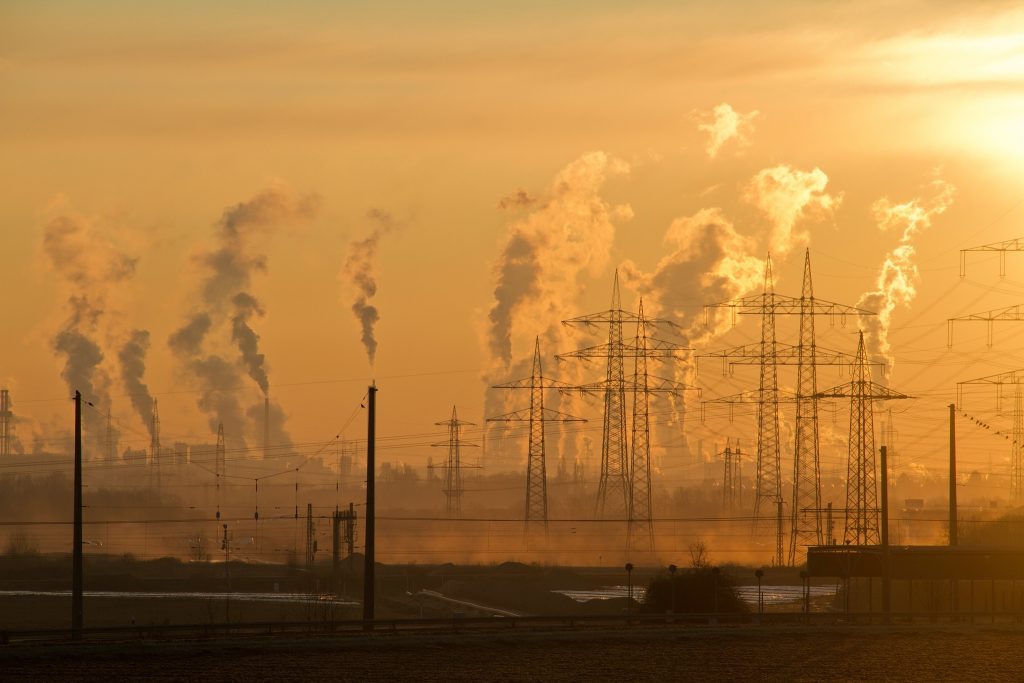Birkbeck graduate Leo Barasi discusses his new book, The Climate Majority: apathy and action in an age of nationalism, which confronts the reality of climate change and the need for ordinary people to take action. 
You could look at the news and think climate disaster is now inevitable. Each of the last three years has, one by one, been the hottest on record. A consequence of that was visible with Hurricanes Harvey and Irma, which were made more destructive by oceans that had been warmed by human emissions. All of this has happened with the world only having warmed by perhaps a third of what it will this century if emissions don’t fall.
But you could also look around and think the world is finally dealing with climate change. For the first time, global emissions have stopped increasing, not because of a recession, but because of efforts to deal with the threat. Nearly every country has committed to limit their emissions, in an agreement that anticipates national commitments will strengthen over time.
Both views are right. Climate change is now here and is killing people. And the world is dealing with it more seriously than ever before. But which path will win out? Will the world eliminate emissions within a generation as it should if it is to prevent dangerous warming? Or will its efforts falter, emissions continue at their current rate (or even increase), and the planet respond with increasingly ferocious storms, heatwaves and droughts?
My book, The Climate Majority: apathy and action in an age of nationalism, looks at one of the factors that could make the difference – and how those of us who are worried about climate change could swing the balance.
While the world has done better than many predicted in halting the increase in emissions, its progress has depended on changes that have imposed little burden on most people. The most important of these has been the closure of coal power plants, and cancellation of new plants, which are increasingly being replaced by lower-carbon sources like gas and renewables.
But eventually, the world will exhaust relatively painless changes like this. At some point, the only remaining emissions cuts – which will be crucial for avoiding dangerous warming – will be from activities that directly affect many people in their day-to-day lives.
Two of the most challenging of these are flying and meat-eating. The world is going to have to radically cut emissions from both – but in the two areas, emissions look set to increase. Without action, either could effectively make it impossible for the world to prevent dangerous warming.
Achieving these harder, but essential, emission cuts won’t be possible without public support. Yet, at the moment, that support wouldn’t be forthcoming. It’s not that many people deny climate change: no more than 20% do, even in the US. The more important problem is that many people, perhaps half the population, understand that climate change is real and a threat, but just don’t think about it very much and don’t understand why they would need to change their lives to deal with it. Without their support, crucial emission-cutting measures will fail.
My book looks at the people who are apathetic about climate change and investigates why they think what they do. It explores how human psychology and the ways climate change is often described have made the problem seem distant, unthreatening, and a special interest of left-wing liberals.
And the book looks at what we can do to overcome apathy. There’s no magic word that will make the world act on climate change, but there are ways we can persuade those who are apathetic that it is worth making the effort to deal with the threat. It’s still possible to tip the balance away from disaster.
The Climate Majority: Apathy and Action in an Age of Nationalism by Leo Barasi is published by New Internationalist on 21 September